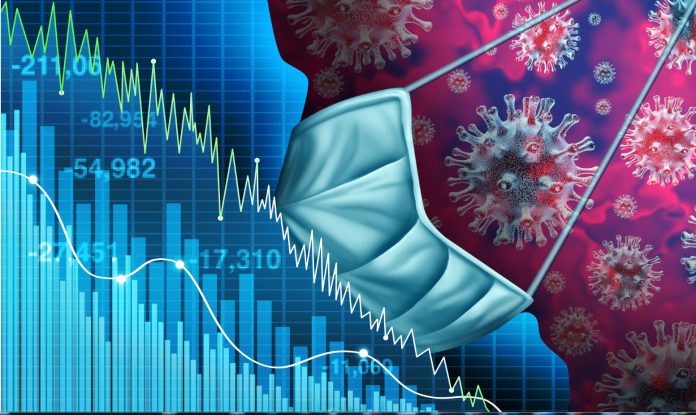
The Effects of The Covid – 19 Pandemic on U.S. Stock Markets
US stocks rose on Thursday 27th of March, closing for a third day in a row, despite a report from the Labor Department that showed jobless claims climbed to a record high of 3.28 million last week, after the spread of the coronary virus epidemic closed companies across the country.
Investors were relieved that the historic $2 trillion bill of economic stimulus had been passed by the Senate, bringing it closer to becoming law to mitigate the economic fallout from an outbreak.
The Rose beginning was on Wednesday 26th of March, US stocks ended Wednesday’s trading higher, but the Nasdaq turned negative in the final minutes of trading, as the passage of the $2 trillion economic bailout package seemed to have been blocked.
The Dow Jones movement recorded the first consecutive gains since February 6, while the S&P 500 index recorded the first consecutive gains since the period ending February 12.
Thanks to the progress that has been made in the US fiscal stimulus package, there has been some improvement in dilapidated stocks during the past two sessions, as investors were concerned about the depth of the next recession and the high death toll from the coronary pandemic worldwide.
However, late on Wednesday, Senator Bernie Sanders of Vermont, who is seeking a Democratic presidential nomination, said he would suspend the bill unless Republican senators drop their objections. Republican senators, including Ben Sas of Nebraska, outlined what they said could be a mistake in a bill on unemployment benefits.
Senate Majority Leader Mitch McConnell said in remarks in the Senate Chamber that the Senate had planned to vote on the rescue bill later on Wednesday. Senator’s opposition questions some doubts about the speedy passage of important legislation that aims to help workers and companies that will be affected by the expanded closure to prevent the spread of the deadly infection.
The text of the law has not yet been issued, but it is expected that $ 1,200 will provide direct payments to many Americans. And to provide more than $ 360 billion in loans to small businesses, and set up a $ 500 billion fund to lend to industries, cities, and states, The Wall Street Journal reported that the package would also expand unemployment insurance, provide hundreds of billions of loans to both small and large companies, and provide resources Additional for health care providers.
In the US economy data, durable goods orders jumped 1.2% in February, mostly due to the large increase in bookings for new cars. While economists did not expect any change.
On Thursday, the Dow Jones moved in the first three days of consecutive gains since February 6, during which it achieved gains of 21.3%, the best performance for three consecutive days since 1931.
Whereas, for the S&P 500 index, it was the first gain chain in three consecutive days, since February 12. During which he gained 17.5%, which is the best performance for three consecutive days since 1933. According to Dow Jones data
Also the main Stocks in U.S. as FB, Apple , Amazon & Google are raise up this week and gain some strength comparing with the previous weeks
The number of Americans who filed for unemployment benefits rose to a record 3.28 million last week, after companies closed and laid off workers as part of efforts to slow the spread of the corona virus, but investors largely expected the data.
Initial jobless claims increased in the week ending March 21 by 3.28 million from 282,000 in the previous week and more than four times the new weekly record number of claims for 695,000 in 1982, according to Labor Ministry figures released on Thursday. During the 2008-2009 economic recession the highest number of new claims per week was 655,000, and ongoing claims peaked at around 6.6 million in 2009 when the total number of unemployed rose to about 15 million.
According to data gathered by Johns Hopkins University, the coronations has infected 510,000 people globally, killing nearly 23,000 people. In the United States, about 70,000 people have contracted the disease while 1,046 people have died.
However, the Senate encouraged investors on Wednesday, which approved a $ 2 trillion emergency relief package, designed to help alleviate the economic damage the disease has already caused to the US economy. The House of Representatives is expected to vote on passing the legislation on Friday and President Donald Trump can sign it into law by Saturday.
In addition, Fed Chairman Jerome Powell said in a morning talk show that Americans should know that the central bank is “working hard to support you now”.
In other economic news, US fourth-quarter GDP was confirmed at 2.1%, and the February commodity trade gap narrowed to $ 59.9 billion, according to government data.




